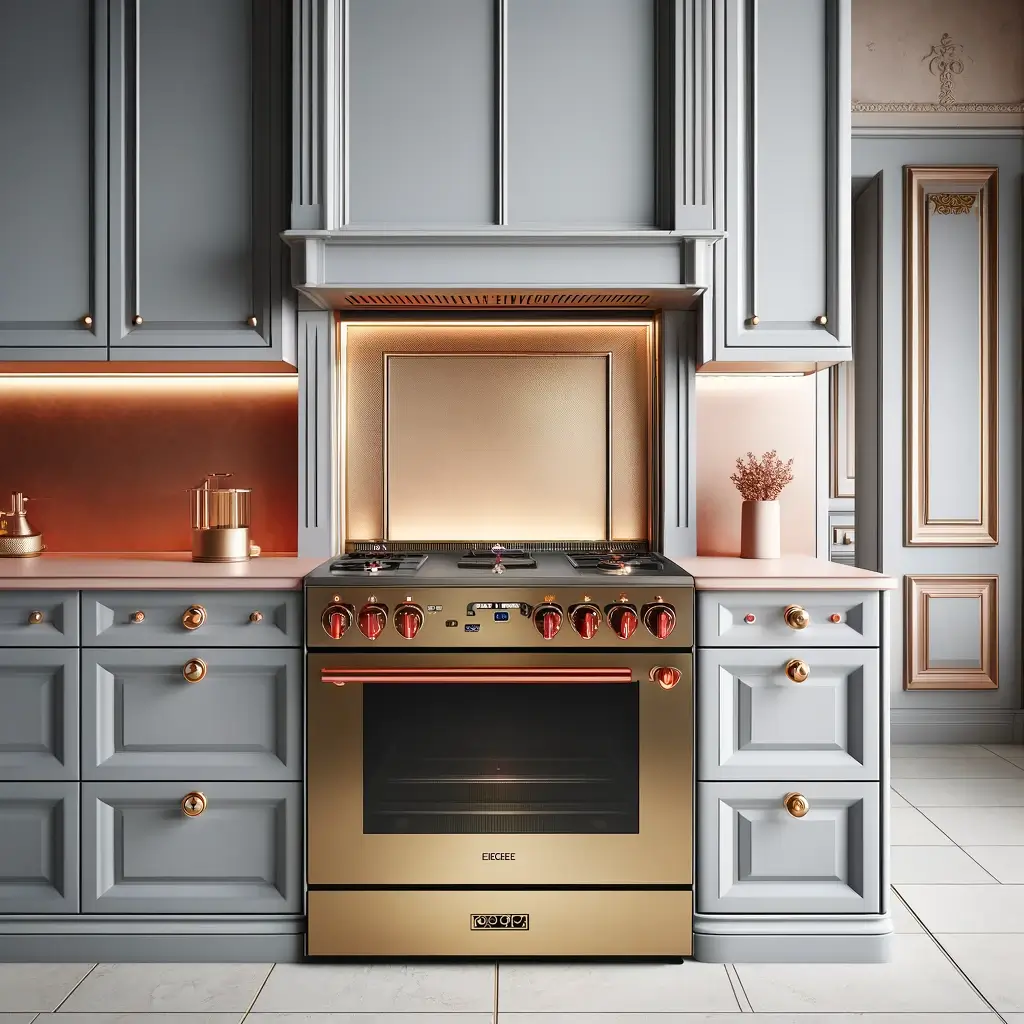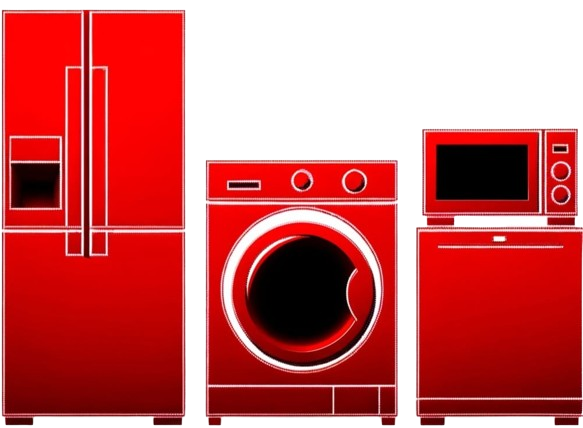May 7, 2024
Creation Date
It’s an unwelcome surprise when your range top begins making strange noises, disrupting the tranquility of your kitchen. The clatter, hum, or clicks can be unsettling, leaving you wondering about the cause. Each sound may point to a different issue, and understanding what might be causing these noises is important. This ensures your range functions safely and efficiently. Whether you have a gas or electric range, they each come with their own unique set of challenges. However, in this article, we’ll focus on the sounds gas range makes and provide some insights on what might be causing them.
Is your range making strange noises?
Normal Sounds:
Many ranges make noises during regular operation. These are usually nothing to worry about. Here’s a quick guide to common range sounds:
- Clicking: This is the sound of the temperature controls turning on and off to maintain a consistent temperature.
- Humming: You might hear a humming noise from the burners, especially on electric ranges. This is normal.
- Popping: Metal expands and contracts as it heats and cools, which can sometimes cause popping sounds. This is especially common during preheating and cooling down.
- Whooshing: Gas ranges may whoosh when lighting the burners.
Identifying the Problem: A Guide to Rangetop Noises
- Loose Burner Grates
- Noise Description: Rattling or clanging.
- Cause: When the burner grates become worn or misaligned, they might not sit evenly on the stove, which can lead to unwanted noise as they move during cooking. Sometimes, the screws that hold them in place get loose over time.
- Solutions:
- Tighten any screws that hold the grates securely in place, ensuring they don’t wiggle during use.
- If the grates themselves are damaged or warped, it’s best to replace them with new ones.
- Safety Note: Loose grates aren’t just noisy; they can also cause spills or uneven cooking due to the instability of your pots and pans.
- Fan Issues
- Noise Description: Whining, whirring, or loud humming.
- Cause: A fan that’s clogged with dust or has a worn-out motor can start to make unusual noises. These fans are usually part of a range ventilation system and are essential for proper airflow.
- Solutions:
- Carefully clean out any dust or debris that might be obstructing the fan blades or motor. This can often solve the problem.
- If the noise persists, you might need to consult your range manual to understand how to replace the fan, or better yet, contact a professional to do the job safely.
- Igniter System Problems (Gas Ranges Only)
- Noise Description: Clicking or rapid clicking.
- Cause: If the igniter is faulty or there’s an issue with the gas flow, you might hear these clicks. It’s usually the igniter trying to light the burner but failing.
- Safety Note: Issues with the igniter system should be handled with caution, as they can lead to gas leaks or even fire hazards. It’s always best to have a qualified appliance repair person take a look at it to ensure safe operation.
- Solutions: A technician might need to clean the igniter or replace it entirely, depending on the extent of the problem.
When your gas range makes unusual noises, it’s not just annoying—it can also be a sign that something is wrong. It’s important to figure out what’s causing the sound and fix it to keep your appliance safe to use. Your appliance’s manual can provide some useful tips on what to check, but when it comes to gas-related issues, always call a professional to handle them safely.
Bonus Tip
To keep your range running smoothly and prevent annoying noises, follow these maintenance tips:
- Clean up spills right away to keep burners clear and free of residue.
- Avoid putting heavy pots on the grates to keep them from getting bent or damaged.
- Check your fan and burners regularly to make sure they are clean and functioning correctly.
- Regular maintenance can go a long way in ensuring your range runs quietly and efficiently for many years.
Diagnostic Tips
To get to the bottom of those pesky noises, take a moment to really listen. Where exactly is the noise coming from? Sometimes, simply paying close attention can tell you a lot about what might be wrong. Notice if the noise changes when you adjust the flame size or turn the fan speed up or down. These changes can give you clues about what’s happening inside your range.
Signs Your Rangetop Needs Professional Help
When your range top starts making unusual noises, it can be tricky to know when it’s a simple fix or something that needs a professional touch.
- Persistent Noises: If the strange noises continue even after you’ve tried cleaning and tightening everything, it might be a sign of a deeper issue. Persistent rattling, clicking, or humming indicates that something might be wrong internally that isn’t visible on the surface.
- Smell of Gas: This is a big one. If you ever smell gas when your range is on or off, it’s time to act fast. Turn off the gas supply if you can do so safely, open windows to let the gas escape, and call a professional immediately. Gas leaks are dangerous and must be handled by experts.
- Weak or Uneven Flames: If the flames on your gas range are uneven, too high, too low, or look different in color (they should be blue with perhaps a small yellow tip, not predominantly yellow or orange), this suggests problems with the gas supply or burner. These issues need a professional’s diagnosis and treatment.
- Failure to Ignite: If your burners fail to light despite the igniter clicking, there might be a blockage or a fault in the gas delivery system. It’s not just frustrating; it could also be unsafe to try and fix this yourself.
- Physical Damage: Any visible damage to gas lines, burners, or the structure of the range itself is a clear call for professional help. Cracks, major dents, or broken components can affect the safety and functionality of your appliance.
- Unusual Sounds from the Gas Line: If you hear whistling, hissing, or clanging from the gas lines themselves, this could indicate a pressure issue or a leak. These sounds are not typical and should be checked by a professional who can safely make repairs.
When in doubt, it’s always better to err on the side of caution and call a professional. We have the tools, experience, and training to safely diagnose and repair your range, ensuring it operates safely and efficiently. Remember, handling gas appliances without proper expertise can be hazardous.
Safety Warnings
Never ignore the smell of gas in your kitchen. If you ever notice it, act fast—it could be a gas leak, which is serious and dangerous. Also, installing carbon monoxide detectors in your home is a smart move, especially if you use gas appliances. These detectors can be lifesavers, alerting you to invisible but dangerous gases.













